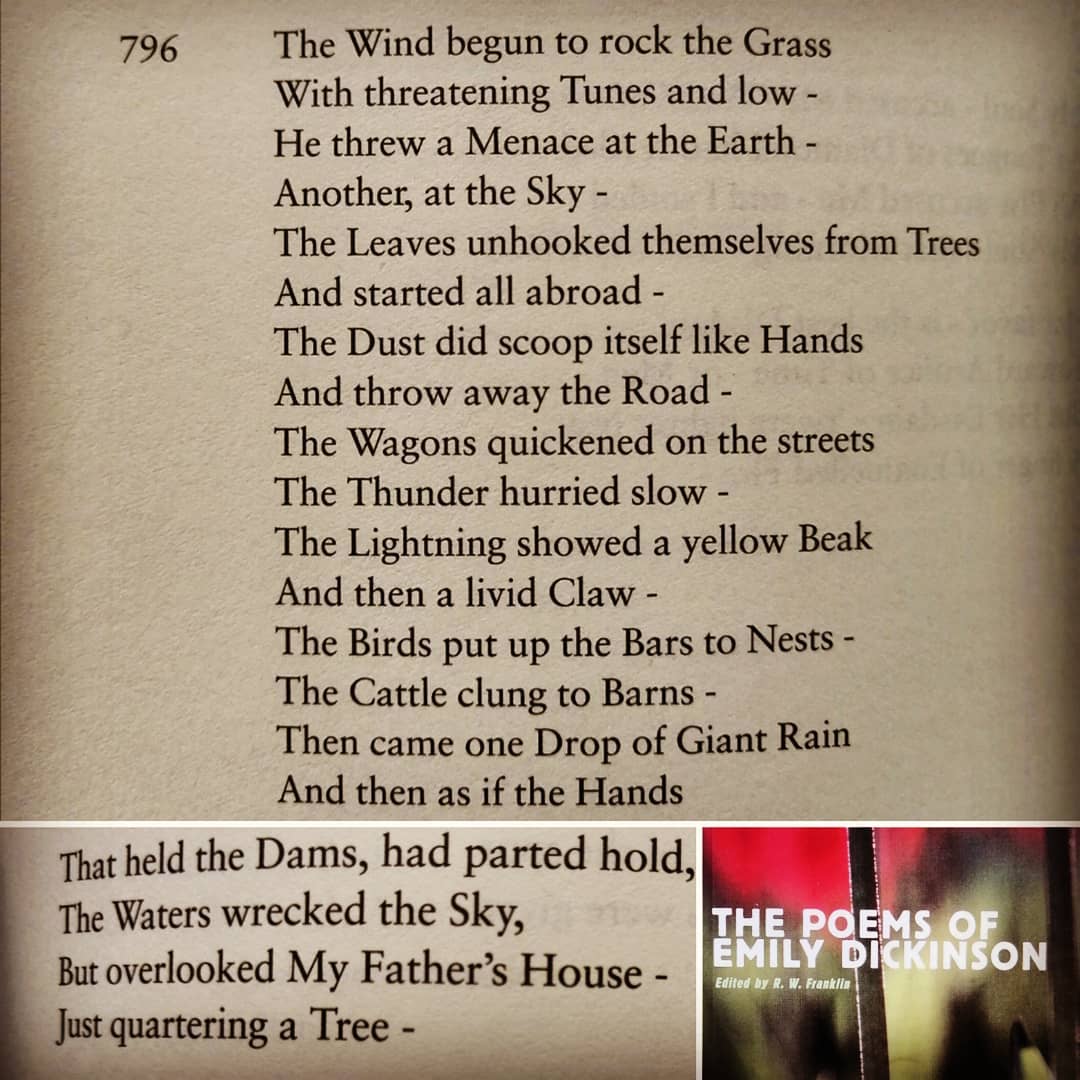As I sit at my desk, I can see how windy, even stormy, the weather is outside. Sometimes, the sun breaks through the clouds for a while, but it doesn’t last long! This changeable windy weather is very common here in Ireland during the autumn months, but it is one of the reasons that I love this time of year. 🍂
It reminds me of the very first poem by the American poet Emily Dickinson (1830-1886) that I ever memorised: ‘The Wind Began to Rock the Grass’. 🌾
🌾 This poem is not only descriptive, it is also RHYTHMIC; you can almost feel the animated beating of the wind and rain through its words and their stresses.
In fact, this is an essential element in achieving good oral expression.
Of course, one of the best ways to improve your command of a language is to spend some time in the country where it is spoken.
The reasoning behind this is that not only will you learn current vocabulary and assimilate the local accent, but you will come to aurally understand native speakers when they speak. Your ear will become accustomed to the natural intonations that give that language its particular tone and colour. In turn, by daily exposure to that INTONATION you too will begin to sound more and more like a native speaker yourself.
In a season when travel is restricted and going abroad to improve a language is not an option for most of us, we can turn to poetry to hear something of the characteristic RHYTHM of the language.
🍃 So try reading any English poem aloud, or if you’re in a cold region like me, read Emily Dickinson’s poem aloud.
PAUSE and STRESS the important words in each line. Sometimes these words will be nouns, but at other points you may need to stress a verb, especially when the stormy movement she describes is becoming more dramatic. Think about which words YOU would like to stress, and why.
💡 TIP: I have transcribed this poem’s intonation, as I have heard it read by native English speakers, here if you are interested (the underlined emphasis is my own, of course):
The Wind begun to Rock the Grass
With threatening Tunes and low –
He threw a Menace at the Earth –
Another, at the Sky –
The Leaves unhooked themselves from Trees
And started all abroad –
The Dust did scoop itself like Hands
And throw away the Road –
The Wagons quickened on the streets
The Thunder hurried slow –
The Lightning showed a yellow Beak
And then a livid Claw –
The Birds put up the Bars to Nests –
The Cattle clung to Barns –
Then came one Drop of Giant Rain
And then as if the Hands
That held the Dams, had parted hold,
The Waters wrecked the Sky,
But overlooked My Father’s House –
Just quartering a Tree –
– Emily Dickinson, ‘The Wind Begun to Rock the Grass’ (1864) – [emphases my own]
As you will notice, the stresses increase just like the storm gaining its own momentum. With practice, you will recognise more easily where the stresses naturally go. The more you listen to poetry being read aloud, whether in person or via media, you will also discover what words you will need to pace more quickly or more slowly as you speak English for your own purposes.
Remember, poetry is to be enjoyed! 😃
This is the most important thing, although I am also sure that learning vocabulary and grammar through its lines will further enhance (improve, enrich) your English!




